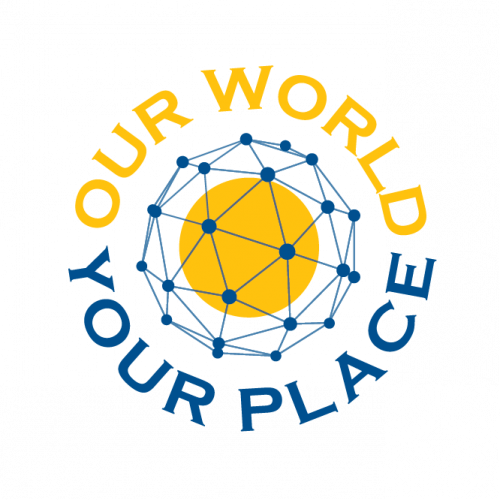
Inside Cherie's Lockdown Bubble in New York
Distance students share their stories on how they have overcome the challenges of isolation.
Cherie's story
“Whenever an individual who is under chronic, physiologically measurable stress, receives repeated information which indicates that his mazeway does not lead to action which reduces the level of stress, he must choose between maintaining his present mazeway and tolerating the stress, or changing the mazeway in an attempt to reduce the stress.”
––Anthony Wallace in “Revitilization Movements” (American Anthropologist Vol. 58: 2, Wiley, 1956).
I’ve been in New York City this semester, the epicenter of the COVID-19 outbreak in the US. Our usually up-beat, bustling and fun lifestyle in the city-that-never-sleeps has been replaced by one clouded by death, despair and depression, interspersed with moments of hope and heartfelt unity.
Our 16-year-old daughter had the virus for a couple of weeks in the middle of March, right around the time the lockdown began. I knew she’d be fine because she’s super healthy, and we know how to maximise nutrition for healing, but it was still scary. We were concerned not only about her recovery and our own exposure to the virus (we live in a small apartment; there was no avoiding it), but also that of our neighbours, especially some older folk and a family that had a newborn preemie just before lockdown. The condo building we live in organised a professional disinfection of all the common spaces. We wore gloves and masks every time we left the building (now we just wear masks, and use a lot of hand sanitizer).
Once she recovered we wanted to escape to Canada (my partner is Canadian) but we didn’t manage to pull it off. We resigned ourselves to hunkering down and seeing it through. It’s been incredibly challenging to listen to the constant sound of sirens (and today not be sure whether the sudden rise in that sound isn’t because people have been imbibing disinfectant!). Every evening at 7pm, throughout our neighbourhood, and throughout the city, people go out onto their balconies to clap and wave, shout and whoop, and bang on drums and pots and pans. What began as an expression of heartfelt gratitude to the healthcare workers near the hospitals has become a collective ritual; a release of tension, grief, and fear, and a celebration of those who have survived, and desire to gather. At the same time, although New York feels united and “tough” (in the governor, Andrew Cuomo’s words), there’s also a pervasive feeling (and ongoing discussion among friends and family), that societally, at a national level, things aren’t really going the way they should be here, and that sense of uncertainty and discomfort has compounded and exacerbated the stress of the threat of the virus.
I realized that any attempt to change the “mazeway” of American society could only happen at a local level; in my state, in my city, in my neighbourhood, in my building, in my apartment, in my family, and in my own mind-body complex. To that end I made a mental commitment to focus on survival, thriving as best I could, and doing what I could to help those around me. It’s really just basic cognitive behavioural therapy, but it feels quite instinctive. My family also participated in this approach; we quickly figured out what we needed to keep going–– physically, materially, and psychologically; how to manage getting food (and toilet paper!) as the grocery stores were instigating social distancing rules and the shelves were emptying out; how to monitor our consumption of the news so that we would know just enough of what we needed to know, and not too much of everything else that exacerbates the despair; how to stay healthy and fit, and how to carve out just enough space for ourselves in our tiny apartment so as not to go too crazy (where once “Occupy Wall Street” seemed like a good activist idea, now “Occupy The Living Room” is making a lot of sense!).
One of the shining constants in my life during this crisis has been my studies by distance at Otago. Although I lost my business (at least temporarily), fortunately my partner still has a job, and my working less has meant that I’ve had more time to research, study, write (and cook!). I feel incredibly fortunate to have had these studies and resources to lean into; not only as a form of distraction from Covidinsanity, but also as a way to continuously improve my capacity to think, to listen, to process new information, to critique, and to understand. Moreover, the support I’ve had from various faculty members in the Social Sciences department has been superb. Their responsiveness and care has facilitated a capacity for deep engagement in the course content and in my intellectual pursuits at a time when the whole world seems to be upside down. It really makes me psyched to continue to learn and evolve as an intellectually-curious being in a world that seems to need as much of that as it can get.
